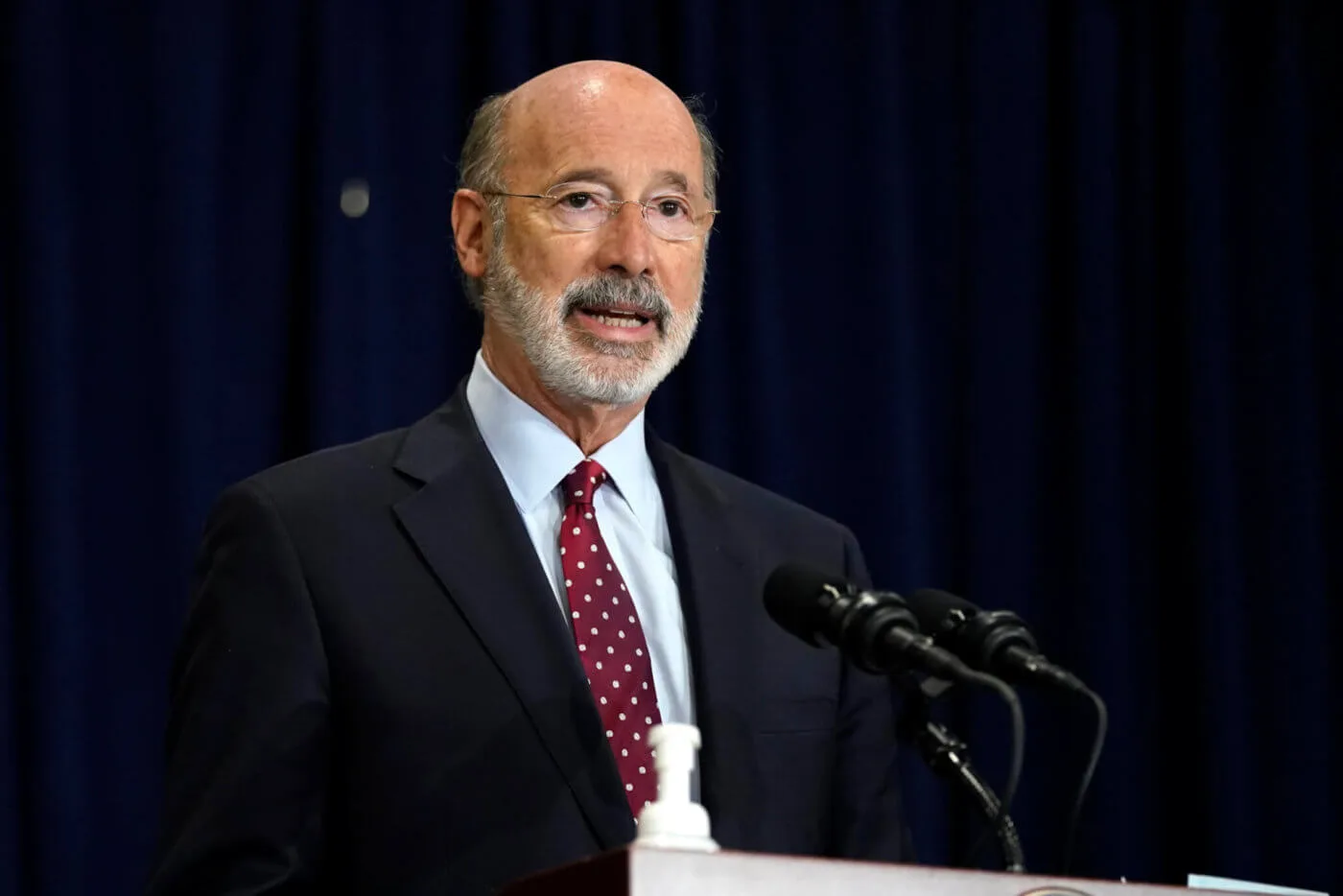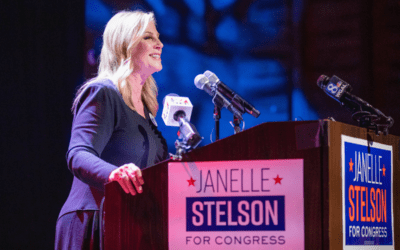
FILE - In this file photo, Pennsylvania Gov. Tom Wolf speaks during a news conference in Harrisburg. (AP Photo/Julio Cortez, File)
Both chambers passed the bill unanimously.
HARRISBURG — Pennsylvania Gov. Tom Wolf signed legislation approved Friday by lawmakers that carries over $900 million in pandemic-driven aid for hard-hit hospitality businesses, private schools and people struggling to pay rent or utility bills.
This time around, landlords and advocates for renters hope the money is free of federal and state rules that plagued the rollout of the first lump of pandemic aid for renters.
Both chambers passed the bill unanimously Friday, and Wolf signed it several hours later.
In addition to distributing money, the bill carries a provision designed to clear up any uncertainty over whether federal pandemic aid, including Paycheck Protection Program loans and direct federal payments to taxpayers, are taxable as income in Pennsylvania. It is not, under the bill.
Most of the $912 million being allocated in the bill is federal aid approved by Congress in December.
Some of it, $145 million, is cash from a state worker’s compensation fund that Wolf asked lawmakers to send to businesses hit hard by the pandemic.
That money would be available through counties in grants of up to $50,000 for bars, restaurants and hotels, although industry representatives say the cash won’t reach many of the 30,000 such businesses that remain under pandemic restrictions in Pennsylvania.
It also won’t replace much of the lost revenue in a state where restaurants in Pennsylvania did about $27 billion in annual sales before the pandemic.
Eligible applicants cannot be publicly traded businesses—a provision that might limit some larger chains, although maybe not franchisees—but it still casts a wide net, allowing businesses with as many as 300 employees at one location and up to $15 million in net worth.
About $197 million would be distributed to private schools and other educational institutions that did not get a cut of the $2.2 billion in federal coronavirus aid that public schools and charter schools are receiving under December’s package passed by Congress.
The majority of the money, $570 million, would be divided up to counties based on population to help people struggling to pay rent or utilities. Landlords, utilities and tenants can apply, with priority under federal guidelines for lower-income households or those where someone is unemployed.
The cash must be spent by Sept. 30 or be returned to the federal government, and may not be ready for applicants until March.
Sixteen counties—those with at least 200,000 residents—and Philadelphia were eligible to apply to the U.S. Treasury Department for direct aid and get a share of Pennsylvania’s total allotment of about $850 million.
Last year’s federal aid for renters ran out in September and the need is still high, said Rachel Garland, the managing attorney for housing at Community Legal Services in Philadelphia.
State and federal rules made that aid money difficult to use in Pennsylvania.
The cap on the amount for an individual renter—$750, less than the median rent in Pennsylvania—frustrated many landlords and renters. Ultimately, two-thirds of the $150 million was left over, and state lawmakers ended up using it to plug a deficit in the state’s operations.
Landlords were required to accept the $750 as full payment for the month, meaning they had to take a loss on a unit that rented for more money.
This time around, there is no cap and the money can pay off utility bills, an important step to help people keep their housing, Garland said.
A number of reports from utilities on file at the Pennsylvania Public Utility Commission show a modest year-over-year increase in the number of customers who are behind on their bills, as of December. Those same reports, however, show a much bigger increase in the amount of money those customers owe.
The aid can be applied to bills over a longer period: renters can qualify for 12 months of bills, including for past months. Plus, counties can use up to 9% for program costs, such as hiring people to help administer applications and to help get the word out to renters and landlords who need the help.
Rita Dallago, executive director of the Pennsylvania Residential Owners Association, whose members own thousands of units around the state, said 32% of her members’ units were in arrears. That’s about 10 times normal, she said.
“So we’re looking to this as being a big help,” Dallago said. “Is it perfect? Probably not.”

For Rep. Susan Wild, supporting PA families includes reproductive rights and much more
Rep. Susan Wild wants to be very clear with Pennsylvanians: Donald Trump is committed to taking away women’s reproductive freedom, but he is not...

School districts working with anti-LGBTQ groups can cost your kids’ schools millions
Parents across South Central Pennsylvania are worried about the potential financial impacts working with anti-LGBTQ groups may have on their school...

VIDEO: Trump distances himself from his anti-abortion views
Donald Trump appeared on WGAL on Tuesday and continued to distance himself from his anti-abortion views claiming that reproductive rights are now a...

VIDEO: Community pushback gets school board to rescind decision on denying gay actor’s visit
Cumberland Valley School Board offered a public apology and voted to reinstate Maulik Pancholy as a guest speaker a week after the board voted to...

VIDEO: Project 2025 brings nuclear armageddon back into vogue
Project 2025 is a titanic document, with plans ranging from cutting half of all government employees to targeting reproductive rights on a scale...




